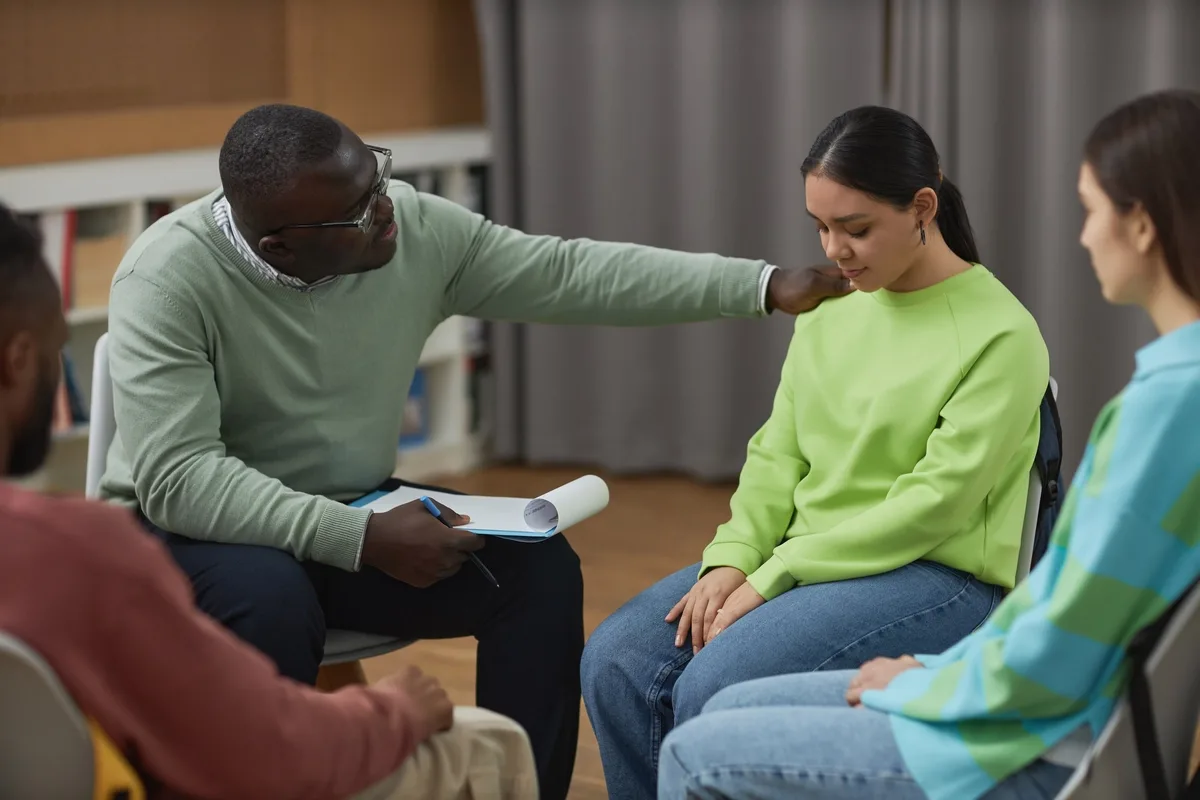24/7 Helpline:
(866) 899-221924/7 Helpline:
(866) 899-2219
Learn more about Group Therapy centers in Callender
Group Therapy in Other Cities

Other Insurance Options

Lucent

Cigna

Excellus

Multiplan

Coventry Health Care

Optima

CareFirst

Absolute Total Care

BHS | Behavioral Health Systems

Humana

Magellan Health

Providence

Highmark

Premera

UnitedHealth Group

Holman Group
Beacon

BlueShield

Choice Care Network

Aetna












